For such a popular show, we’ve heard a lot about who 13 Reasons Why isn’t for. That leaves the question... who should be watching?
With season three of the polarising show already given the green light, 13 Reasons Why is still making headlines for its controversial first two seasons. While season one may have drawn criticism from mental health experts which led to the introduction of new trigger warnings presented by the cast, critics and viewers alike widely praised the show for its frank depictions of sensitive issues and the teenage experience.
Based on the international best-selling book from author Jay Asher, season two dropped on Netflix in May this year to a much more luke-warm welcome. Mental health organisations around the world banded together, creating a coalition of over 70 leading voices in mental health to provide viewers, parents, and teachers with a toolkit filled with advice for those looking to watch season the second season.
Despite the drop in favourable reviews from viewers and critics alike (in addition to continued criticism from mental health experts), ratings were high enough for Netflix to give the go-ahead for a third season.
Although reactions may have continued to be mixed, the show has begun showing the positive impact treatment and diagnosis of mental illness can have for young people, as well as the ways in which wellbeing, emotional and mental health can be negatively impacted when issues aren’t addressed. Regardless of its faults and limitations, 13 Reasons Why has got a lot to offer for the right audiences.
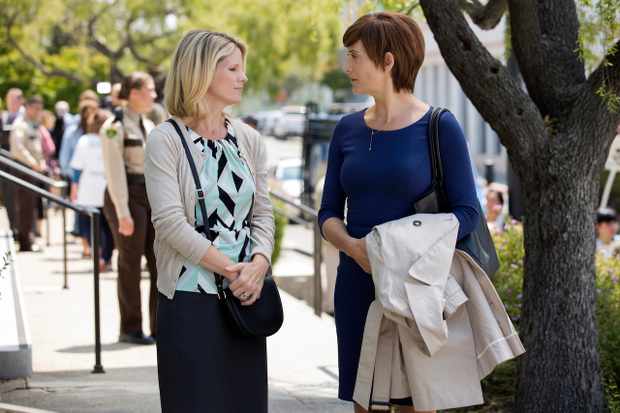
Parents
If you’re a parent who wants to know what all the fuss is about, watching the show by yourself could be a good starting point. While season two has been called out for trying to fit in too many issues into too few episodes, overall, the show features a surprisingly authentic-feeling cast. It gives viewers an insight into parts of the teen experience they may not have considered before.
Season two also does a fairly good job of showing the positive – and negative – impacts parents can have on their teens. Showcasing a mixture of supportive parents who spot the signs their teens are struggling, parents who have good intentions but aren’t sure how to help, parents who are struggling too much with their own issues to be there for their kids when they are needed, and those who just don’t want to acknowledge anything is wrong, the series shows how big of an impact – good, bad, and downright ugly – their actions can have.
Although there is still room for improvement, season two does a much better job of encouraging teens to talk to parents, and parents to have more open, honest conversations with their kids. Season one widely portrayed adults as distant, non-existent, or secondary enemies, with teens rarely seeking them out for support or guidance.
Season two is sprinkled with relatable parents from across the spectrum. From Clay’s Dad who is willing to put his marriage on the line to do what he feels is best for his son’s mental health and wellbeing, to Hannah’s mother who regrets every time she dismissed her daughter’s worries or could have been more sensitive. From Zach’s mum who refuses to listen to anything that paints her son’s emotional health well being in a less than positive light, to Justin’s mother, whose own problems with addiction leave her unable to provide the support her son desperately needs. The show gives parents a bit of an insight into what warning signs they can keep an eye out for, not only with their own children’s mental health and wellbeing but with their teen’s friends too.
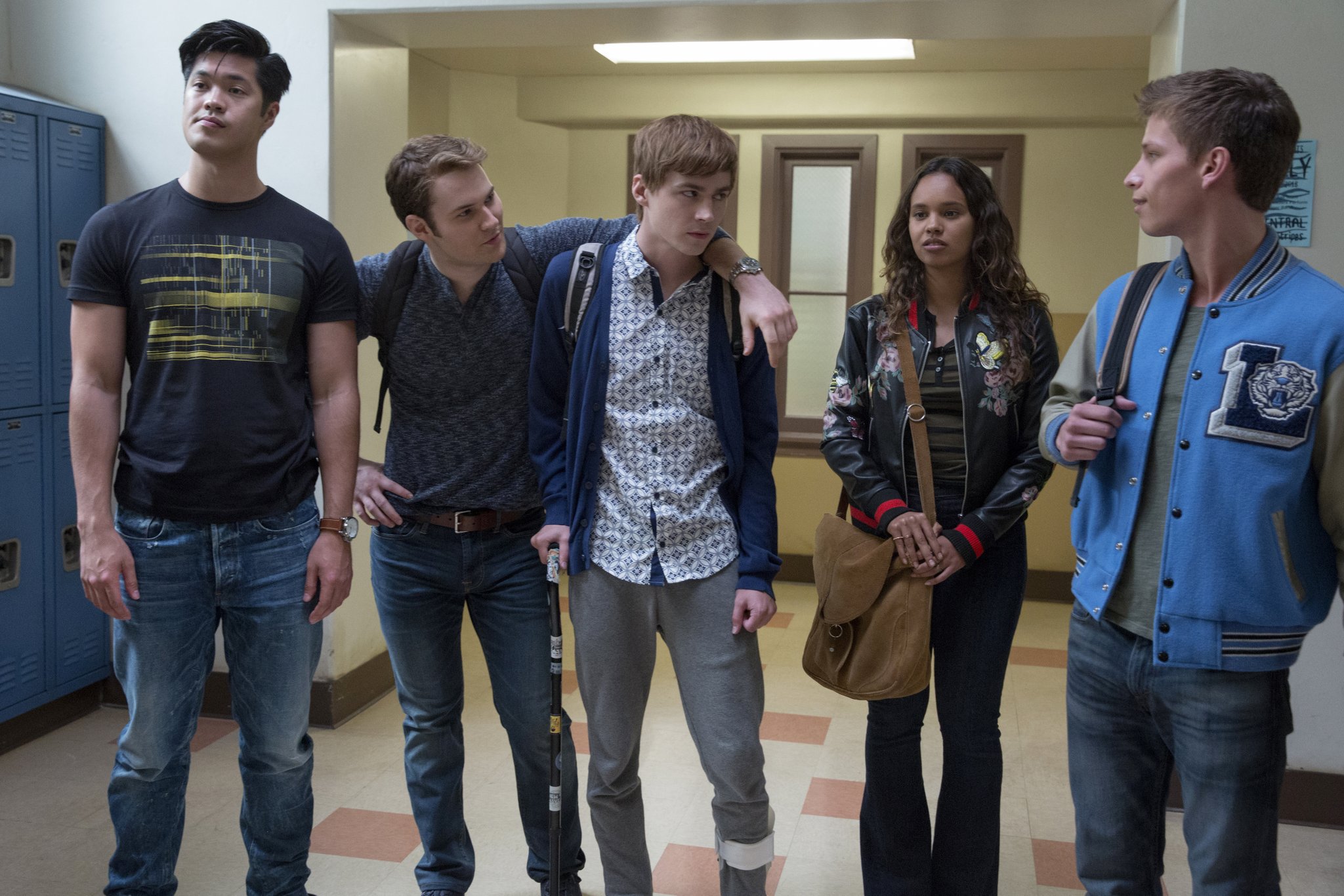
Older Teens
While the show does have an 18 rating, the original source material is recommended for teens as young as 13. Regardless of guidelines, teens and young adults are amongst the most likely to tune into the show. Whether the hype around the latest season (and upcoming season three) has you excited or feeling wary, it does get quite a few things right for teens.
The show gives a realistic portrayal of how things can go when you’re seeking help. From what can go right or wrong, to whether you’re trying to go it alone or are seeking help, 13 Reasons Why shows that even when things don’t necessarily go right, finding the support you need is worth it in the end.
Both seasons do a good job of highlighting different perspectives. Whether viewers are athletic and popular, artsy and creative, an outsider or a loner, in the closet or out and proud, there’s a portrayal of a different perspective than their own that should strike a chord and help them to consider a different point of view.
We also get a better insight into the adults around the predominantly teen-focused cast, something we didn’t experience in the previous season. Viewers can see the effects of grief, bereavement and regret Hannah’s mother, Olivia, experiences - as she struggles to understand what happened to her daughter and battles her own feelings of guilt, regret, and loss.
Arguably, one of the show’s key messages should be particularly poignant for teen viewers; focusing on the power words and actions, however small or insignificant they may seem to us or feel in the moment, can have on others. Small lies and hidden truths, starting or spreading rumours, twisting events, shifting things to put ourselves in a better light or to agree with another’s negative take on someone or something – season two highlights what a huge effect an unkind word or unthought out action can have on those around us.
For those who may have a friend or loved one who has experienced bereavement, several characters’ storylines can give a greater insight into their conflicting emotions and what they may have gone through. The show portrays individuals experiencing and working through grief at their own pace, with some desperate to ‘get over it’ despite clearly struggling and not being ready move on, whilst others seem to work through things more smoothly. The varying ways individuals handle the loss of their friend or loved one should help reassure teens that there isn’t a right or wrong way to grieve, nor should people feel like they need to rush to move on.
Parents & Teens
Let’s be honest; regardless of the age rating, younger teens are likely to want to watch 13 Reasons Why. By watching with teens, parents can help open up the conversation, start a dialogue, and keep an eye out for any signs that something may be worrying younger viewers.
While the relationship between teens and parents in the series isn’t perfect, series two toes the line between realistic and hopeful. Presenting parents and teachers as unwaveringly supportive and having all the answers wouldn’t seem authentic, relatable, or realistic – for teens or parents.
By showing flawed relationships that are still engaging, that still have widely positive outcomes (or are working towards a message of hope) the show can better engage viewers whilst creating opportunities to open up dialogues and get younger people and parents talking about sensitive or uncomfortable topics. No, it doesn’t offer all the answers we may want, but it does help create a conversation about how we can help those around us, how we can ask for help, and how we can begin to heal.
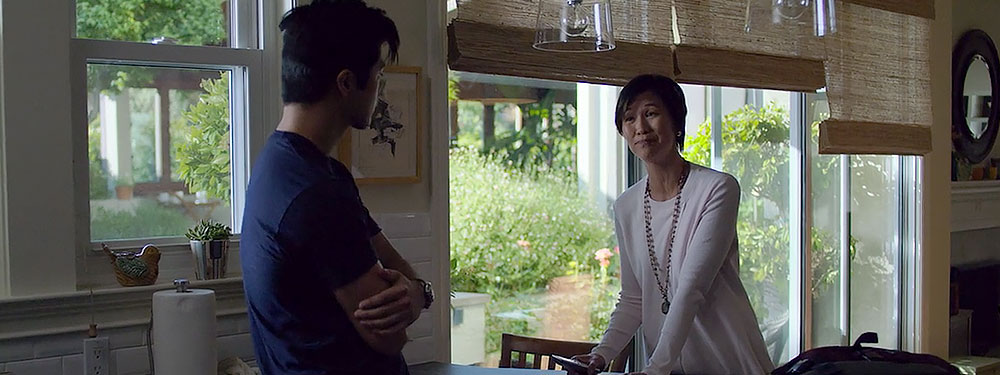
Teachers
One of the major complaints about the show as a whole has been its portrayals of the school and teachers. While many may feel that school would be an obvious place for teens without a parent they feel comfortable talking with to go, 13 Reasons Why shows an overwhelming lack of confidence amongst students and parents alike in the schooling system.
From outright banning students from talking about suicide (from fear of contagion) to finding ways for students who excel at athletics to get around drug testing policies, Liberty High School isn’t exactly a shining beacon of hope and support. This representation isn’t necessarily a bad thing.
Highlighting the school’s fear of more student deaths, Liberty High outright bans not only the word suicide but talking about Hannah’s death and Alex’s attempted suicide, too. This merely inhibits open dialogue, making it unclear to teens what is and isn’t appropriate to talk about, hindering many from feeling able to seek help. Left to their own thought or to talk in secret, it’s clear for many of the teens presented in the show that this does more harm than good.
13 Reasons Why provides a starting point to open up dialogues with students, parents, or colleagues. Although the presence of teachers in the show is minimal, the few who are present show unhealthy student/teacher relationships, with sporting success, the school’s reputation, and following the minimum school guidelines and not a smidge more are the priorities over both student and teacher emotional, mental, and physical wellbeing and safety.
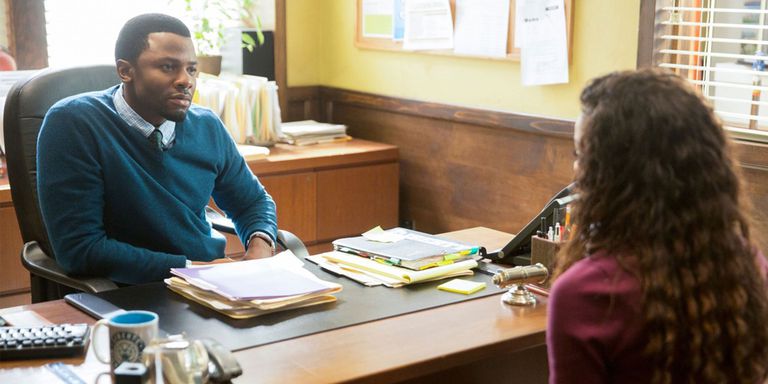
School counsellor and teacher Mr. Porter is shown as frustrated by the system, wracked with guilt for not doing more to help Hannah, and torn in a system that puts itself above students. While over the top in places, his struggle to figure out what is best for him – working within a broken system, or seeking out a more supportive one – provides interesting insight for students into a perspective they may have not previously considered: even school teachers or counsellors who are there to provide a safe spaces and someone to talk to can make mistakes. Stopping at the first hurdle should never be the answer.
Despite its many faults, the show does do one thing successfully: it highlights that, for many schools, the mental health policies and education for students can be severely lacking. While there have been more debates about compulsory mental health education in schools and opinions have swayed towards a more whole-school approach as the future of mental health in education, there is still much debate about who is responsible for children’s mental health at school.
13 Reasons Why shows teachers accepting and following the existing systems, and teachers who stand up and want to be heard, who refuse to hold their hands up and say ‘I followed the guidelines’ if it could mean harming students under their care. Creating an open environment where students feel comfortable talking about sensitive issues, know where or who they can turn to, and understand the importance of seeking help and advice if they are concerned about themselves or others is vital to the mental health and wellbeing of young people.
The series shows us just about every conceivable way that the system (and some educators) can get it wrong. By showing viewers there are still ways teens will get around this, that there are other places they can turn, and that, if they persist, they will find someone who can provide them with necessary help and support – they may just need to keep pushing.
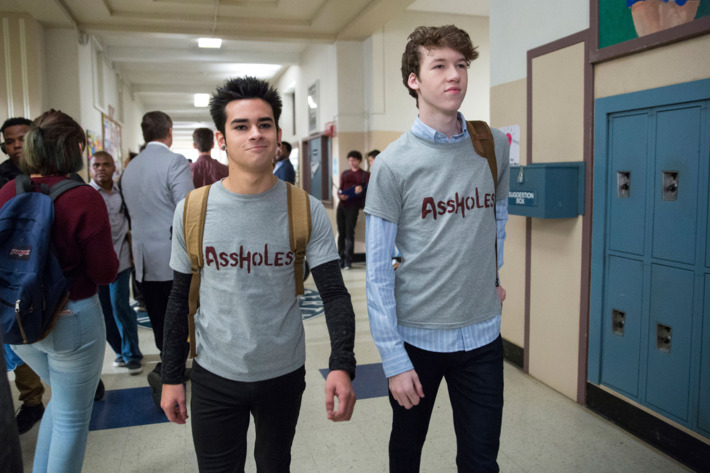
Adults who enjoy YA dramas
Putting aside the strong mental health themes for one moment, it’s worth keeping in mind that the show for all its outcomes (good and bad) is primarily created for entertainment. While some are understandably wary about turning such serious issues into plot devices for a TV show, we should remember that this is how so many key issues are brought to the forefront of the public mind. Not through academic papers, documentaries, or case studies.
People are passionate about tangible things, relatable characters, and bingeable shows. If putting a serious issue into a format that is more entertainment-focused helps get more people to understand and connect with the underlying messages, is that really a bad thing?
Is 13 Reasons Why for…
Variations around ‘if a show about mental health isn’t appropriate for the people with that mental health issue, then who is it for?’ have been popping up across various outlets. If we still haven’t convinced you who it may be for, we have a few more suggestions for who may learn something from watching the show:
- People who say ‘just pull yourself together’ when someone is depressed, without understanding the underlying difficulties and struggles that person goes through each day whilst battling their depression.
- The ones who say ‘it's all in your head’ when anxiety leaves someone dreading the thought of leaving the house in the morning, of answering their phone or meeting up with friends in a crowded place.
- Those who think ‘just locker room talk’ is still an excuse to make demeaning jokes or threats, without thinking of the consequences and impact their ‘joke’ could have on the women they talk about, and the men who hear them.
13 Reasons Why is a cautionary tale that shows audiences the importance of support networks, engaged schooling, mental health education, and open, honest dialogues between everyone at every age.
It isn’t designed to show perfect situations where teens know exactly who to turn to, and adults pick up on every tiny hint as to something being amiss. It shows how flawed human nature is, no matter how good our intentions, and how impossibly hard it can seem to reach out for help, especially for those who may not find the help they need the first time they ask.
It also gives viewers hope. No matter how many times they may reach out to someone unable or unwilling to help, no matter how dark a situation may feel, there will always be someone out there who is willing to help; it’s just a matter of finding them.
If you do experience distressing feelings/thoughts whilst watching or after watching 13 Reasons Why, contact your GP, find an expert on Counselling Directory, or for immediate support get in touch with the Samaritans 24/7 free to call any time from any phone in the UK or ROI on 116 123; or email jo@samaritans.org.
13 Reasons Why may not be recommended for viewers if…
- They have experienced or are currently experiencing feelings of depression, thoughts of self-harm, suicidal thoughts, have been the victim of sexual assault or bullying. Mental health professionals and individuals who have had these experiences have widely called the show unnecessarily graphic and triggering in places. If you are concerned about yourself or others, check out the 13 Reasons Why Toolkit for advice around the show; visit Counselling Directory for help and support around specific issues; or contact Samaritans on 116 123 at any time for a safe person to talk to and guidance on where you can access further help and support.
- They are under 18. Although the show has an advisory age rating of 18 and above, experts have advised parents against outright banning teens from watching the show. Mental health professionals have instead suggested parents watch the show together with teens who show an interest in the show, to help keep dialogue open, and to reassure teens who may otherwise watch the show in secret that they can talk about any issues or concerns they may have about subjects tackled in the show.

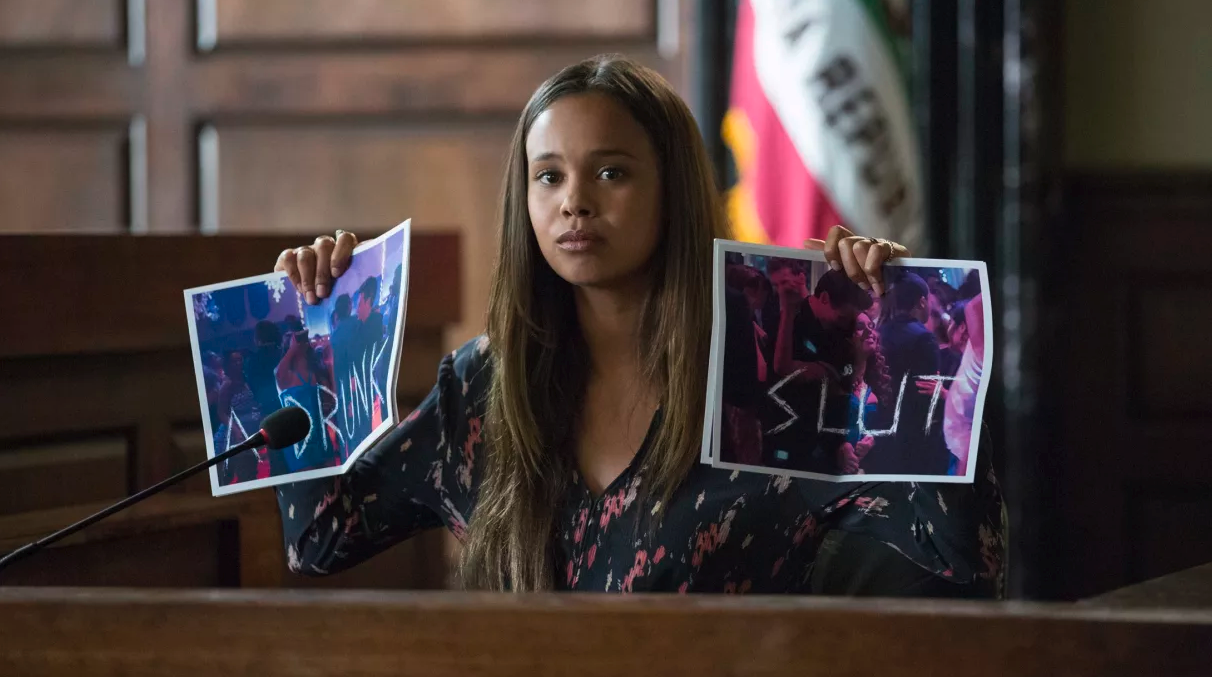
Comments